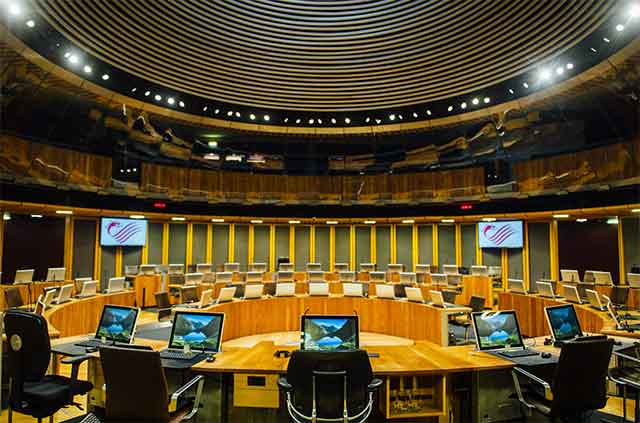Wales’ universities are being battered and bruised from every angle, with concerns about a fundamentally broken funding model, a Senedd member warned.
Cefin Campbell told the Senedd the greatest burden will fall on students, with a reduction in services, as he warned a further tuition fee increase may be inevitable.
The Plaid Cymru politician raised concerns about the Higher Education Funding Council for Wales’ (Hefcw) funding allocations which were announced on Tuesday.
He said Aberystwyth University faces a reduction of £1.1m; Swansea University, £2.4m; Cardiff, £3.7m; Bangor, £600,000; and Trinity St David’s, £800,000.
During education questions on July 10, Mr Campbell said: “These cuts will force universities to make difficult decisions, potentially leading to staff redundancies.”
‘No choice’
The shadow education secretary raised the risk of losing “vital” academic programmes and research initiatives, which contribute to the economy and wider society.
Mr Campbell said: “The risk is that we will see more job losses happening. Already, universities have talked about redundancies, both voluntary and compulsory.
“Aberystwyth spoke recently about the loss of some 200 jobs and Swansea around 190 jobs. No university wants to take these decisions but, in terms of the continued viability of these universities for the future, they have no other choice.”
The former lecturer, who represents Mid and West Wales, accused the Welsh Government of being short sighted in its approach to higher education.
He warned Wales could be put at a competitive disadvantage as other countries continue to invest in universities to drive growth and social mobility.
‘Crisis’
Mr Campbell asked Wales’ education secretary: “Is it your government’s policy to let our higher education sector wither, or will you finally step in and support this sector in crisis?”
Lynne Neagle said the Welsh Government funding provided via Hefcw – the arm’s-length body which will be replaced in August – is barely 10% of the total.
She said: “The challenges that they’re facing are due to a range of factors, such as overseas student funding, changes in commercial revenues and research income.”
Ms Neagle acknowledged the challenging financial constraints faced by higher education institutions – “not just in Wales but across the UK”.
The education secretary, who was appointed in May, explained that universities have been impacted by changes to student visas and inflationary pressures.
‘Big hit’
She said: “The whole approach to immigration of the previous UK Government and the very unwelcoming climate that has been created have had an impact, a major impact.”
Ms Neagle told the chamber that universities also took a “big hit” on European funds.
“I do recognise the pressures that they’re under,” she reiterated. “That was also one of the reasons why we agreed to the increase in student fees to £9,250.”
Ms Neagle said she has asked for an early meeting with the new UK Labour Government to talk about the pressures facing higher education.
Vowing to do her utmost to support universities and students, the minister said the Welsh Government’s student financial support package is the most generous in the UK.

